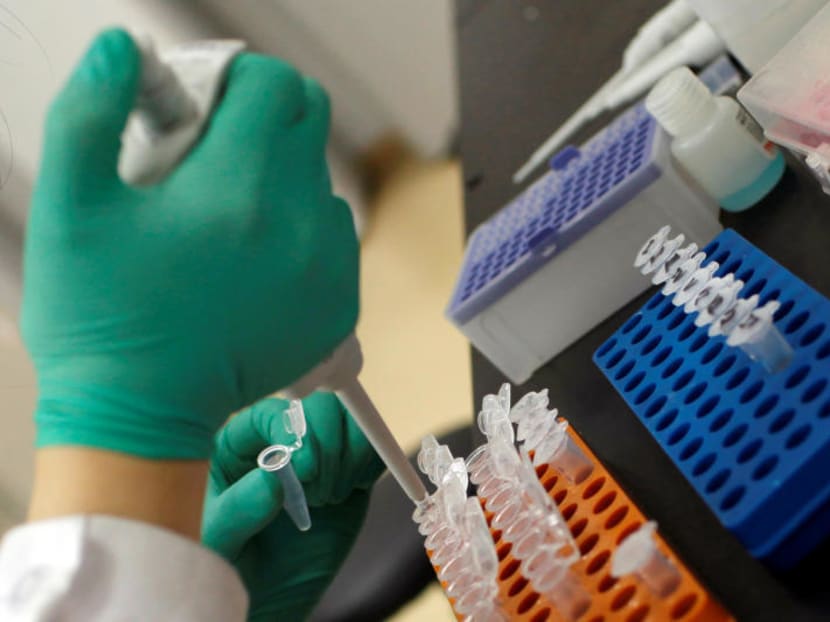Surge in local biotech scene as public investments pay off
SINGAPORE — In a space that has been traditionally tough for startups to see rapid results or make quick profits, the local biotech scene has seen a surge in not only new companies formed, but also in valuation and clinical trial numbers.

Reuters file photo
SINGAPORE — In a space that has been traditionally tough for startups to see rapid results or make quick profits, the local biotech scene has seen a surge in not only new companies formed, but also in valuation and clinical trial numbers.
More of them have also been getting themselves listed, such as oncology focused biotech company Aslan Pharmaceuticals and bio-analytic solutions provider InvitroCue.
Biotech companies use technology, immunotherapy, gene therapy and bio-engineering, among others, in developing drugs and treatments. They typically do more research and development, as compared to conventional drug companies.
According to the Agency for Science, Technology and Research (A*Star), the number of local drug development biotech startups has more than doubled in the last six years to about 50, from less than half that in the preceding decade.
Between 2011 and 2015, the business expenditure they contributed to research and development for Singapore’s pharmaceuticals and biotechnology sector jumped sevenfold from S$21 million to S$143 million.
Dr Benjamin Seet, executive director of A*Star’s Biomedical Research Council (BMRC) said: “We are witnessing a surge in new companies being formed, higher valuations and locally developed drug candidates going into clinical trials.”
“All this is the result of the sustained public investments and support for the biomedical sciences over the past two decades. It has been a long journey – but we are now seeing scientific discoveries that were made in our research institutes, universities and hospitals being translated into novel products that have been spun off into biotech companies,” he added.
In the past, the biotech field was more public sector-driven, but the private sector has been given a boost in recent times, with increased funding from both private investors and the public sector. In addition, the growth of entrepreneurial talent has made its way into this sector.
Industry players say the field is not without risk and results take time.
Aslan’s chief executive Carl Firth said investors cannot expect quick profits but should look at long term payoffs, given the longer gestation period of drug development.
“Also, most biotech companies aren’t valued on profit, but for their long term potential and what they could be earning in ten to 20 years’ time, or their acquisition potential by pharmaceutical companies,” said Dr Firth.
“We need more specialist investors in Singapore, it’s a chicken-and-egg situation.”
Aslan, founded in 2010, has so far not turned a profit. Its revenue last year was US$11.5 million and its total market capitalisation is S$420million. It has had a few rounds of funding, which have raised US$100 million so far.
Things are looking up – the company was listed on the Taipei Stock Exchange in June with an Initial Public Offering (IPO) price of NT$69 (S$3) per share, raising a total of US$33 million.
The global rights for one of its drugs, ASLAN002, were also acquired by global pharmaceutical company Bristol-Myers Squibb last year, netting it an upfront payment of US$10 million, with expected subsequent payments of US$40million.
Another biotech startup, Atreca, specialising in immunotherapy, was founded in 2012. Three years later, it raised US$56million in a Series A funding round in the United States, where the company is based.
Dr Tan Yann Chong co-founded Atreca with his professor while doing his postgraduate studies at Stanford University. While the company has not brought any product to market yet, it is preparing a Phase One trial for a few drug candidates. It is also collaborating with heavyweights such as GlaxoSmithKline, Sanofi and Novartis, as well as the Bill & Melinda Gates Foundation.
“I’ve come to view drug development very differently from, say, selling info-tech apps. It’s a very different business model. It’s about creating assets, intellectual property. It is something that has real value, even if it is still in a Phase One trial. As a biotech company, I ideally want to move along the process and get to a higher and higher valuation,” Dr Tan told TODAY.
A*Star’s priority is to sustain the growth in the biotech industry. It is providing such companies access to its research capabilities through joint projects and laboratories, as well as support through incubators.
“I am highly optimistic that the number of companies will continue to rise. The ecosystem has become more sophisticated but there is still much room for growth,” said Dr Seet.






